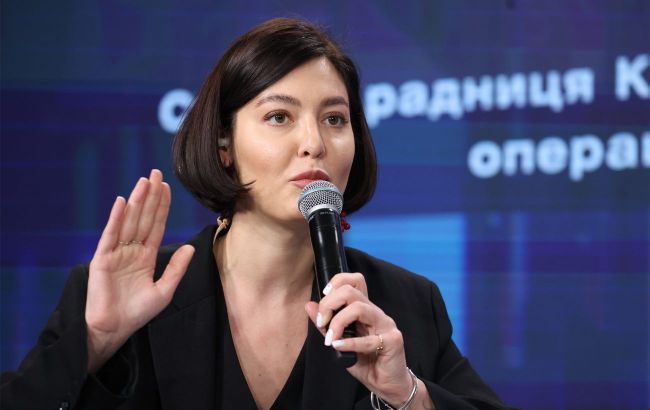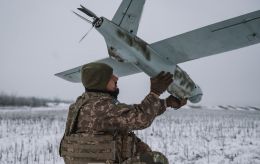How Russia affecting deported Ukrainian children: Explanation from Zelenskyy's Office
 Photo: Daria Zarivna, advisor to the head of the Office of the President Andriy Yermak (GettyImages)
Photo: Daria Zarivna, advisor to the head of the Office of the President Andriy Yermak (GettyImages)
Russia is doing everything possible to prevent deported Ukrainian children from returning home. In particular, it even forces them to record videos on camera in which they refuse to return, according to a statement by Daria Zarivna, advisor to the head of the Office of the President, Andriy Yermak.
"Russia is not only attacking these children's identity. It is deliberately destroying their will — their desire to be themselves. And how is it doing this? Brutally and cynically," she says.
According to Zarivna, the first step is isolation — separating the child from their family, friends, and familiar surroundings, and depriving them of access to any alternative sources of information.
"The next stage is a ban on the Ukrainian language, a ban on identifying as Ukrainian. The children are told, 'Ukraine has abandoned you.' Russia uses a similar tactic with Ukrainian prisoners of war," the official notes.
This process, Zarivna explains, continues for a while, until the child is made to feel ashamed of their identity, instilled with guilt, when they are left with no internal anchors, when everything has been taken away, and only emptiness remains.
"This inner void is gradually filled. First, with shame. And later, with hatred. Toward Ukraine. Toward everything Ukrainian," Daria Zarivna says.
Russia forces children to record videos refusing to return to Ukraine
During rescue operations, specialists from the Bring Kids Back UA initiative sometimes encounter situations where, at the first point of contact, a child is frightened or not ready to immediately leave the familiar environment. This is a natural reaction in a state of deep trauma, especially when it’s unclear what the child has endured or what they expect from the future.
According to Daria Zarivna, children are sometimes forced to record videos on camera in which they refuse to return to Ukraine. These videos are typically made under pressure and blackmail.
"This is the same mechanism Russia uses with prisoners of war: first torture, then the person says what they’re told to on camera. Once the camera is turned off, the abuse resumes," explain representatives of Bring Kids Back UA.
How should one interact with a child in such circumstances?
In these conditions, the primary goal is to provide the child with the full truth — to explain what awaits them at home: safety, support, a future, and most importantly, the freedom to be themselves.
The child’s opinion is an important part of safeguarding their interests. At the same time, the final responsibility for the decision lies with adults — the child’s legal guardians. This is a universally recognized approach, followed both in Ukraine and around the world.
"We cannot assume that a child who refuses to return is truly safe. A secure environment and psychological support must first be provided. Only then can we begin to talk about the child's own view of the future," the Bring Kids Back UA initiative emphasizes.
This is exactly the principle upon which Ukraine’s return and reintegration system is based.
Where to report a missing or deported child
The Bring Kids Back UA initiative urges anyone with information about a deported or missing child to immediately contact the relevant authorities or reach out directly to the organization.
They caution against taking independent action without a proper understanding of the situation, as it may harm both the child and the process of their return.
"Such cases are rare — and fortunately, that’s a good thing," the initiative notes.
Today, thousands of Ukrainian children remain in captivity in Russia.
"Yes, compassion is important. But action matters even more. Every country, every organization, and every individual bears responsibility. Because time is not on our side. With each passing day, these children lose more of themselves," emphasizes Daria Zarivna.

